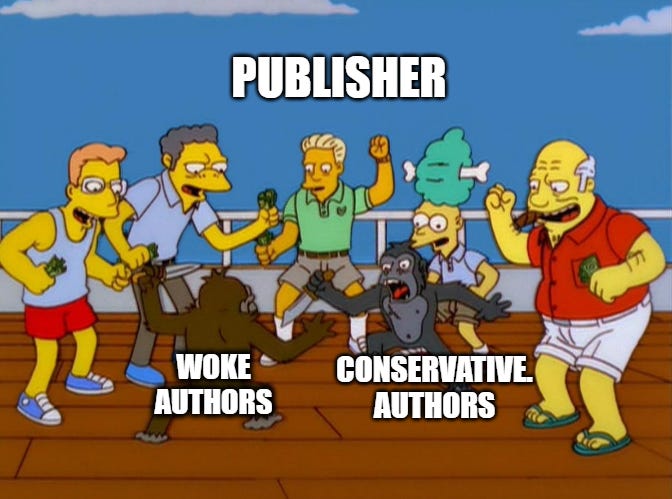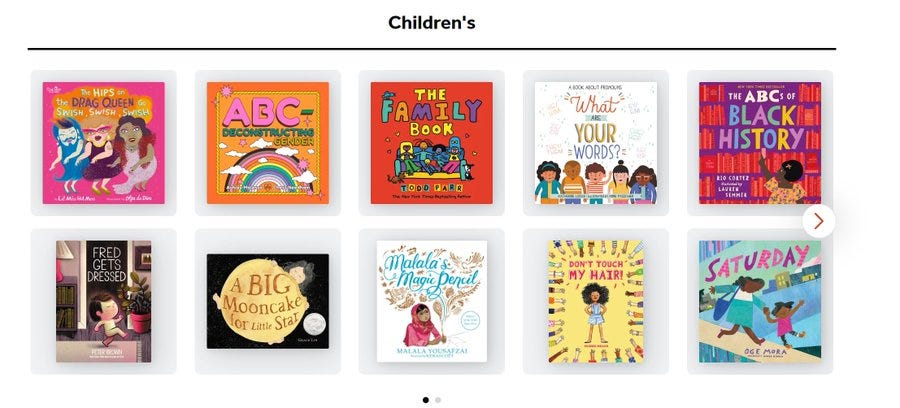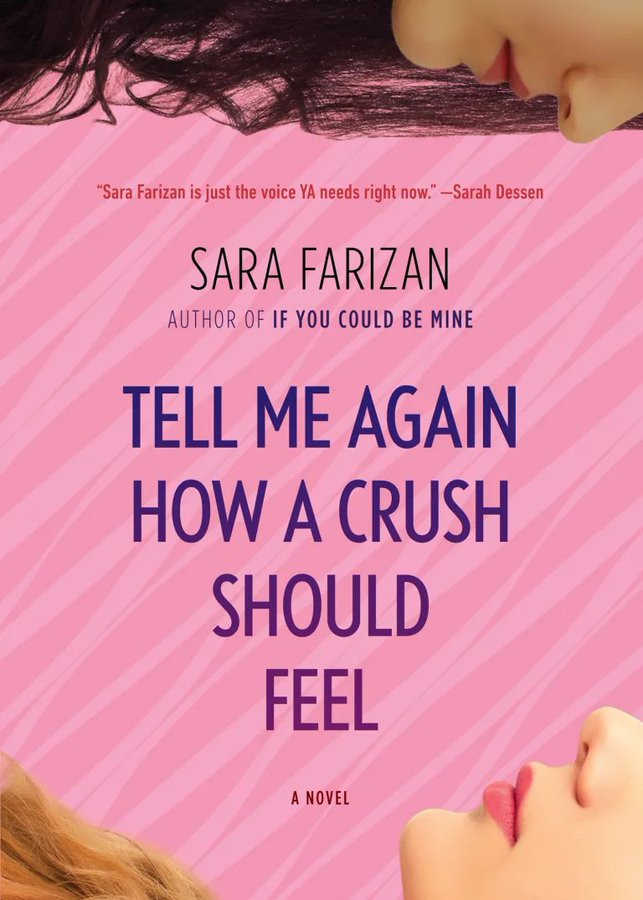Should Conservative Authors Write for Woke Publishers?
How do you feel about conservative authors working through imprints (divisions) of a larger woke publisher? I'm not sure how I feel about it. I can see pros and cons, and so here are my thoughts. Let me know what you think in the comments section.
For example, CenterStreet publishing is an imprint (i.e., a division) of HachetteUS. When you go to Center Street's page on Hachette's website, you see a lot of authors most of us would support. You may not like all of them, but by and large the ideas they argue against (e.g., communism and men in women’s sports) you would support:



But if you go to Hachette's main page, you find a link to a page dedicated to banned books. Many these books have been demonstrated by Moms4Liberty and RonDeSantis to be mature in their content and not suitable for the classroom. In the banned books section of Hachette's site, we find LGBTQ+ propaganda for kids, as well as books like Lawn Boy, which contains explicit content and is advertised as a "coming of age" story. Here is a link to a review of Lawn Boy, but be WARNED. It’s content is explicit.
But the section that is particularly disturbing is their young-adult section. Here we find the book, Tell Me Again How a Crush Should Feel. It describes a young Iranian American girl struggling with same-sex attraction.
Here is how Hachette’s product page describes the content:
"As an Iranian American, she’s different enough; if word got out that Leila liked girls, life would be twice as hard. But when beautiful new girl Saskia shows up, Leila starts to take risks she never thought she would."
Now, regardless of your view on LGBT issues. One thing is an objective fact, the LGBTQ agenda seeks to change moral teaching for Christians, Jews, and Muslims. In other words, their position is no longer “don’t ask, don’t tell.” It’s “our way, or the highway.” Is this because Hachette desires to help young Iranian American Lesbians? Maybe, but based on their conservative division’s content, it’s more likely that publishing opposing moralities grows the pie for everyone, except those with principles.
That said, I also recognize that you must pick your battles. Maybe your book will help change the company for the better as your writing begins to gain influence and become more prescient. Perhaps, as your book brings in more money, the publisher takes a closer look at your writing and becomes convinced that the profits from woke books aren’t worth it. Who knows?
What do you think? Should conservative authors write for publishers knowing their book's sales will go towards the very causes they are writing against? I understand getting your book out there, at the same time, if my first book's profits were actively supporting dangerous ideas, I'm not sure I could accept the offer, but if I ever get that opportunity, maybe it will become clearer why these authors do what they do.
Finally, this discovery also confirms in my mind that there are real incentives in the economy that reward media companies, publishers, and non-profits for fighting about problems rather than solving them. When people agree on their what the common good is, incentivizing the fight over the solution is a good thing. However, in our current situation, the market has incentivized disagreement over the common good, and should the divisions over it widen, we will learn first hand the meaning of Jesus Christ’s words, “A house divided cannot stand.”





I’m a conservative (a bit libertarian) who’s written a couple books. While I can’t prove anything, I suspect there have been efforts to stifle my voice; too many coincidences in delaying and possibly shadow-banning my work. Again, that’s not something I’ve been able to prove; maybe my content just isn’t that good or I don’t know how to market well enough.
I’m currently trying to expand selling my books in other outlets to see if I can break away from perceived censorship.
Currently, I’m only on Amazon/Kindle. You can find my books by searching my name on Amazon: Matthew W Bertsch.
I just released a new book called “‘carnation: The Many Lives of Ordell Clayton Hart”, which is an inspirational comedy. It was originally written as a screenplay which I converted into a book (too expensive to film).